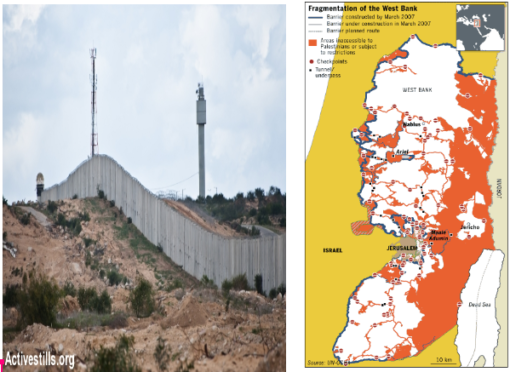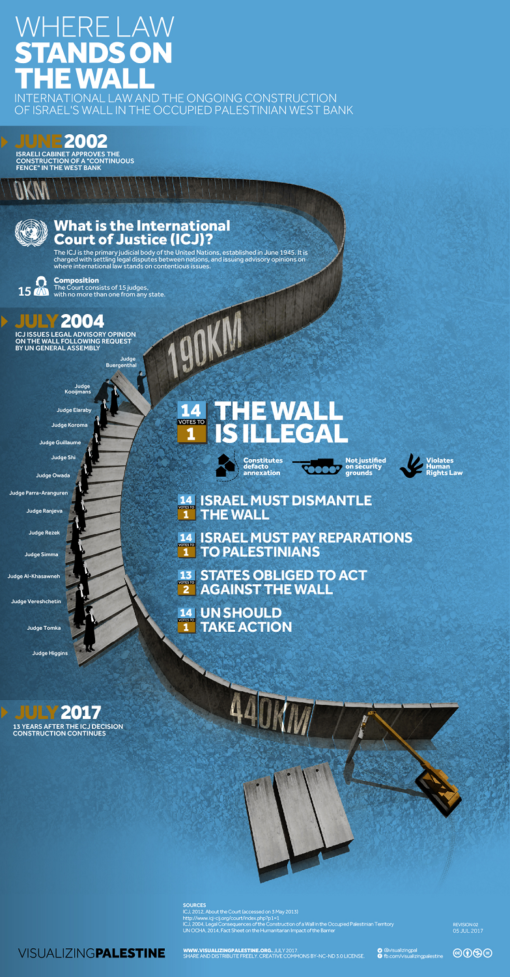This 9th July marks fifteen years since the International Court of Justice delivered its historic Advisory Opinion on Israel’s Wall in the occupied West Bank. The ICJ was requested to look into this issue by the UN General Assembly and in its final advisory opinion, ‘Legal Consequences of the Construction of a Wall in the Occupied Palestinian Territory’, the ICJ deemed the wall to be illegal, constituting defact anexation and violating human rights. Before we look more into the details of this advisory opinion, let us contextualize this wall.

Israel started building this ‘barrier’ in 2002, starting near Jenin in the northern part of the occupied West Bank. Going much beyond the 1967 Green Line, it effectively attempts to create Bantustans, fragmenting the land and ghettoising Palestinians. The construction of this wall is ongoing precisely to further this fragmentation. This wall has ripped through homes, schools, libraries, shops- the very land itself. Across these walls are the ever growing illegal Israeli settlements which seek to create ‘facts on the ground’ and entrench the colonization of the West Bank.
In the light of this, the UN General Assembly requested the ICJ for its opinion on the legality of this apartheid wall. The ICJ opinion not only deemed the wall illegal, it also held that Israel must dismantle the wall and stop any further construction, that it must pay reparations for the damage, that other states are obligated to not recognize and not assist Israel in the situation created by the wall, and finally, that the UN General Assembly as well as Security Council must take action against it.

Beyond the legal question, Palestinians have been resisting the wall and Israel’s apartheid, occupation and colonialism that it represents in myriad ways, everyday- from pulling down parts of the wall to mobilizing local committees to just covering it with graffiti. A year after the ICJ Advisory Opinion, the largest coalition of the Palestinian civil society launched the call for Boycott, Divestment and Sanctions against Israel until it respects international law and Palestinian human rights. This growing movement reflects not only the strength of Palestinian resistance, but also the global solidarity for it. And with these everyday resistances, this wall will fall.




